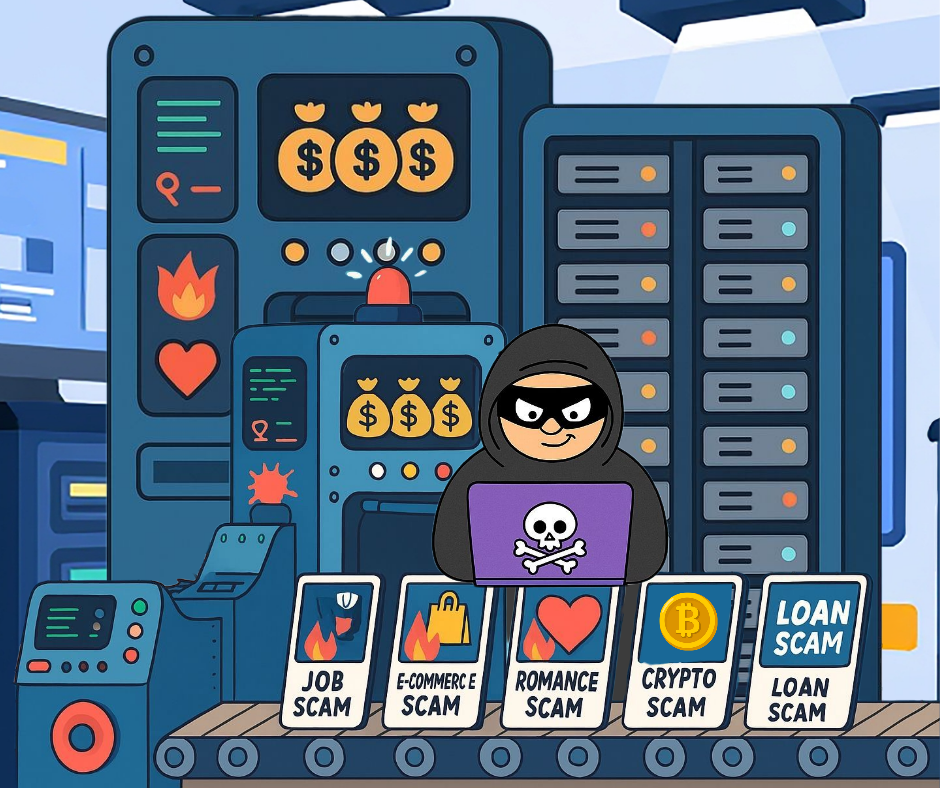The Optimization Task Scam: A hybrid Scam which Targets Every Demographic
 The Optimization Task Scam came to my attention thanks to a follower and while it does share some similarities to job scams like the Laptop Farm Scam, the optimization task scam also borrows some tactics from Pig Butchering
The Optimization Task Scam came to my attention thanks to a follower and while it does share some similarities to job scams like the Laptop Farm Scam, the optimization task scam also borrows some tactics from Pig Butchering

 Emergency services around the world are increasingly adopting comprehensive emergency alert systems that reach people through multiple channels including mobile phones, official alert apps, social media, email, and other communication platforms.
Emergency services around the world are increasingly adopting comprehensive emergency alert systems that reach people through multiple channels including mobile phones, official alert apps, social media, email, and other communication platforms. You are enjoying a romantic evening in a picturesque European piazza or walking hand in hand through a crowded tourist district; the ambiance is perfect.
You are enjoying a romantic evening in a picturesque European piazza or walking hand in hand through a crowded tourist district; the ambiance is perfect. A new variation of the notorious pig butchering scam has emerged in the growing world of online collectibles, hiding behind the respectable image of coin collecting. Known as the collector coin scam, it combines emotional manipulation with fabricated investment opportunities involving rare and commemorative coins.
A new variation of the notorious pig butchering scam has emerged in the growing world of online collectibles, hiding behind the respectable image of coin collecting. Known as the collector coin scam, it combines emotional manipulation with fabricated investment opportunities involving rare and commemorative coins. 🦃Black Friday is a retail phenomenon rooted in the United States, traditionally the day after Thanksgiving, marking the unofficial start of the holiday shopping season. Retailers long used this day to lure consumers with massive discounts and promotional events. Over the decades, what began as a one-day event in U.S.
🦃Black Friday is a retail phenomenon rooted in the United States, traditionally the day after Thanksgiving, marking the unofficial start of the holiday shopping season. Retailers long used this day to lure consumers with massive discounts and promotional events. Over the decades, what began as a one-day event in U.S. In today’s connected world, Microsoft 365 is a lifeline for millions of businesses and individuals. Scammers have seized on this reliance, creating one of the most insidious forms of digital fraud. The Microsoft 365 scam targets users through emails, phone calls, and pop-up alerts that appear legitimate.
In today’s connected world, Microsoft 365 is a lifeline for millions of businesses and individuals. Scammers have seized on this reliance, creating one of the most insidious forms of digital fraud. The Microsoft 365 scam targets users through emails, phone calls, and pop-up alerts that appear legitimate. There have been a number of Amazon based scams, and here is another one.
There have been a number of Amazon based scams, and here is another one. Online advertising has become the beating heart of the digital economy but behind the glossy interfaces and targeted campaigns hide a darker truth: the system is flooded with fraud.
Online advertising has become the beating heart of the digital economy but behind the glossy interfaces and targeted campaigns hide a darker truth: the system is flooded with fraud.